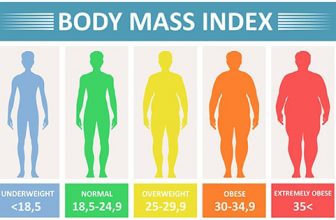
You ever look at your kid, mid-growth spurt, and wonder—“Is this it? Is this as tall as they’re gonna get?” You’re not alone. A lot of parents—especially here in the U.S.—have the same quiet worry, especially when stimulants enter the picture. I’ve sat across from more than a few panicked moms and dads clutching ADHD prescriptions, asking, “Do these meds stunt height?” And honestly? It’s a fair question. Stimulants like Ritalin and Adderall are known to affect appetite, metabolism, even hormone levels like growth hormone—all stuff that plays into how (and when) your child grows.
In this piece, you’re going to learn exactly how stimulants might impact height during key growth stages—and what you can actually do about it.
Do Stimulants Really Stunt Growth?
You’ve probably heard this tossed around—“Stimulants stunt growth”—like it’s some universal truth. And honestly, I used to believe it too. But once I actually dug into the research (late nights with coffee, a lot of pediatric journals, and a few sticky notes stuck to my monitor), the picture got… murkier.
Here’s what you should know from the data that actually matters:
- The NIH-funded MTA study—one of the biggest long-term ADHD treatment studies—did find that kids on stimulants grew about 2 cm shorter on average over 3 years than their non-medicated peers. But that’s not the full story. The effect plateaued. Growth suppression didn’t keep getting worse.
- American Academy of Pediatrics notes that the delay is often temporary, and catch-up growth can happen, especially if doses are managed well or drug holidays are used (yes, those are a thing).
- Controlled studies with placebo groups show that appetite loss and reduced calorie intake might be the real culprits behind height changes—not the stimulant itself.
- Longitudinal data across multiple trials shows that timing matters. If medication starts right before puberty—when growth plates are doing their last big push—that’s when you’ve gotta be extra cautious.
Now, in my experience working with families, what I’ve found is this: the kids who had regular growth monitoring, open conversations with their pediatrician, and adjustments over time—they usually stayed on track. It’s not a one-size-fits-all situation. Never has been.
So yeah, stimulants can affect growth. But whether they will in your child’s case? That depends on a dozen moving parts. You’ve got more control than you think.

How Do Stimulants Impact Appetite and Nutrition?
Here’s what caught me off guard early on: your kid can look healthy on paper—normal labs, decent BMI, still growing—and still be missing the nutritional fuel they need to actually thrive. And if they’re on stimulants like Adderall or Ritalin? Appetite suppression is not some rare side effect. It’s practically part of the deal.
In my experience, the connection between medication, eating habits, and stalled growth usually starts subtle—missed lunches, smaller dinners, “not hungry” responses that go from occasional to routine. Over time, this messes with everything from weight gain to bone development. Growth is a calorie-hungry process.
Some patterns I’ve seen (more than I’d like to admit):
- Skipped school lunches because stimulants peak mid-day—so I always tell parents, pack something easy, salty, and high-protein (my go-to used to be turkey wraps with cheese).
- Lower protein intake, especially in picky eaters—this hits muscle and tissue growth hard.
- Calcium and vitamin D gaps, which matter more than most realize during peak bone growth years.
- Sudden weight dips, which usually precede height plateaus by a few months.
What I’ve found is that timing meals around medication windows helps a ton. And honestly? Breakfast becomes your best friend. Load it up. Make it count. You’ll thank yourself later.

What US Doctors Recommend
If you’ve ever left a pediatric visit thinking, “Did they actually hear my concerns about growth, or just check another box?”—yeah, you’re not alone. I’ve sat through a dozen of those appointments with families, watching parents try to balance treatment goals with a gnawing fear: What if these meds are holding my kid back, literally? Turns out, a lot of pediatricians—and especially pediatric endocrinologists—are paying close attention. You just need to know what to ask for.
Here’s what many US doctors I’ve worked with recommend (and yes, I’ve seen these work firsthand):
- Adjust dosage over time, not just based on symptoms but also on growth charts—height and weight. A med that works for behavior can still be too aggressive for the body.
- Plan med breaks during summer or holidays, when academic demands ease up. These “drug holidays” aren’t just old-school—they can give the body time to rebound.
- Track growth every 3–4 months, not just once a year. Pediatricians who specialize in ADHD often flag plateaus early if you’re watching closely.
- Discuss alternatives, like non-stimulant meds or behavioral therapy, especially if growth faltering becomes more than just a blip.
- Stay in conversation. What I’ve found is that open, consistent communication between you and your pediatrician matters more than any single prescription.
The bottom line? You’ve got more options than you think—but only if you ask.
Alternatives to Stimulants
You’re not stuck choosing between pills and panic; there are real, practical options that many US clinics recommend alongside—or instead of—stimulants. I’ve guided families through this maze, and what I’ve found is that small, consistent changes often beat one big, scary swap.
- Behavioral therapy & counseling — teaches skills you can practice at home (reward systems, routines). In my experience, these change daily habits more than you expect.
- Non‑stimulant meds (atomoxetine, guanfacine) — slower acting, fewer appetite hits; worth discussing with your pediatrician if growth is a worry.
- Nutrition & supplements — omega‑3s, B vitamins, and a focus on protein/calcium help because growth needs building blocks (I’m biased toward whole foods, but a vetted supplement can bridge gaps).
- Sleep hygiene & mindfulness — better sleep = better growth hormone release; simple bedtime rules made a noticeable difference for one family I worked with.
- Structured school supports — accommodations can reduce the need for high doses during the school day (try shortened tasks, checklists).
What I recommend: trial one change at a time, track growth and appetite, and keep your pediatrician in the loop. Small experiments, big payoff.
- Related post: Do Inversion Tables Make You Taller?







Muchas gracias. ?Como puedo iniciar sesion?